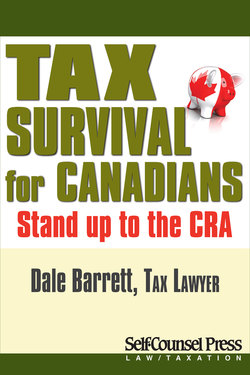Читать книгу Tax Survival for Canadians - Dale Barrett - Страница 10
На сайте Литреса книга снята с продажи.
2.2 Information arising from “requests” for information
ОглавлениеIn order to accomplish audit and enforcement activities, the CRA has been provided with broad rights to review taxpayers’ books and records. Information is not limited to access of information merely within the taxpayers’ possession; so long as it is within the course of conducting the audit or inspection, it is possible that the CRA may seek relevant information in the possession of others.
To that end, the CRA has been provided by law with substantial authority to access all types of documents. This broad authority includes access to documents of third parties, auditors’, and accountants’ papers that may be relevant to the taxpayer’s books and records, or to the enforcement or administration of relevant tax legislation. It is important to note that although this authority is broad, it is still subject to important exceptions, such as the solicitor-client privilege or relevant litigation privilege.
According to the CRA’s policy statement (available on the CRA website), the collection of information by officials is done in the least intrusive and most direct manner, but in practice this is not always the case. Oftentimes auditors will attempt to collect information from the source that is most likely to provide it to them the fastest — regardless of any inconvenience, cost, or embarrassment to the taxpayer.
Typically, officials narrow their requests to documents that are within the scope of review, and will generally communicate directly with the taxpayer to retrieve relevant documents or records. Such information is often only sought from third parties when the taxpayer is not or has not been cooperative in providing the information.
